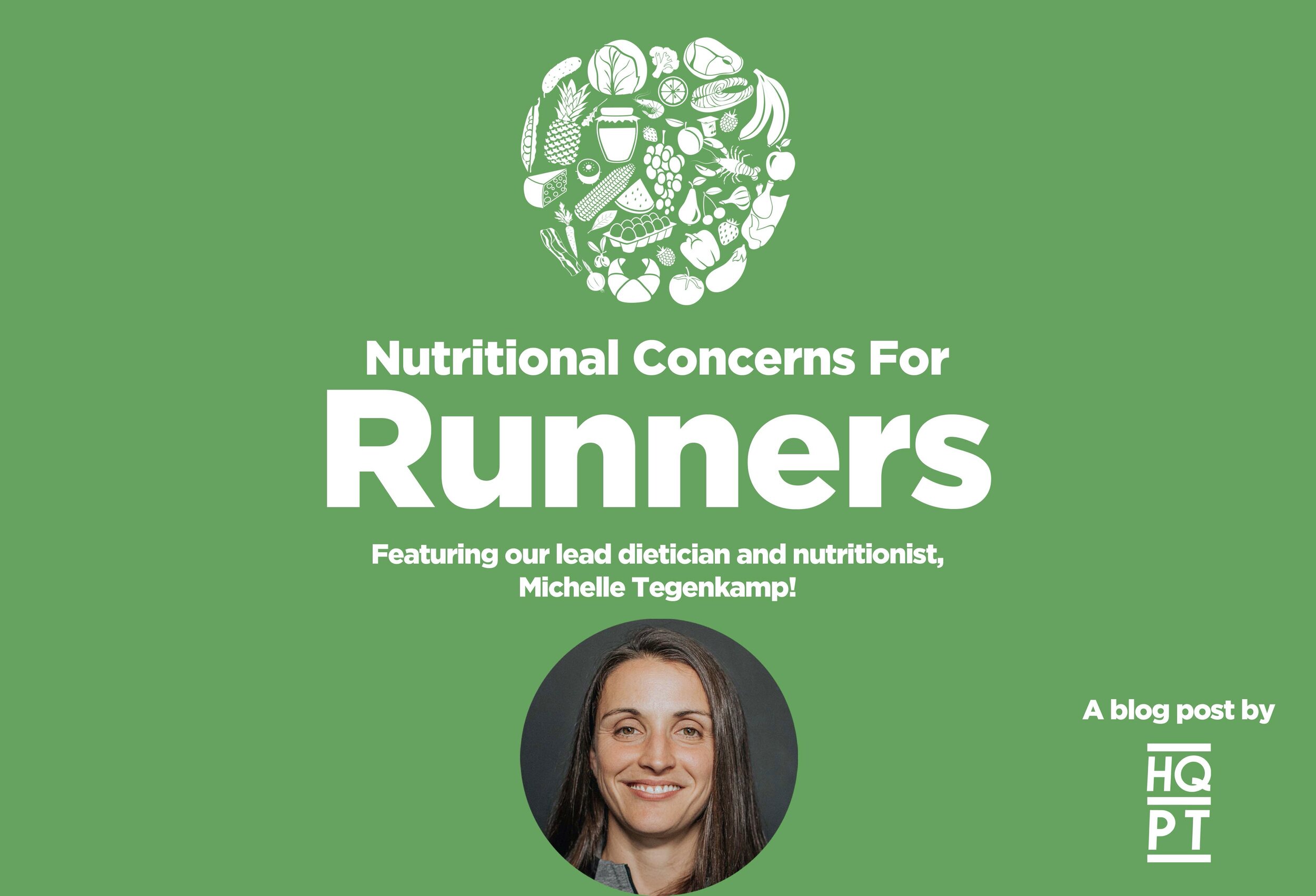Nutritional Concerns for Runners
This week we are featuring another blog by our in-house performance nutritionist and dietitian, Michelle Tegenkamp. Michelle’s experience with running, both as a competitor and as a nutritionist, is unrivaled.
As much as I love working with athletes of all ages, levels, and sports, I will admit that runners hold a special place in my heart. Through my years of helping runners of all levels with their nutrition, these 3 nutrition related issues have shown themselves to be the most prevalent.
Anemia
Anemia results when the body lacks enough red blood cells or has dysfunctional red blood cells. This reduction in healthy red blood cells makes it difficult for the bloodstream to carry oxygen throughout the body. Some signs and symptoms to watch out for include fatigue, “heavy” legs while running, paler than normal skin, easy bruising, cold extremities, and unusually elevated heart rate. What to do about it? If I suspect an athlete may be anemic I encourage them to get their iron stores (ferritin) tested. For runners just being in the normal range for ferritin may not be enough. Depending on their level of training and competition I will have athletes work to increase their ferritin levels above even the normal range. Often, increasing iron levels can be achieved through dietary modifications. Some foods that are high in iron include, bison, beef, chicken, organ meats, shellfish, beans and lentils, tofu, and dark leafy greens. If levels are really low or not responding to food sources, a supplemental form of iron may be necessary.
Bone Stress Injuries
Bone stress injuries ultimately result from accumulated impact force that the body is unable to adequately recover from. When it comes to the running community, inadequate caloric consumption is a large contributor to poor recovery. Weakened bone integrity is one of the components of the common female athlete triad. The other two components include fatigue and menstrual dysfunction. Once caloric needs have been met, protein intake must then be evaluated.
In some instances, micronutrients may need to be assessed if blood work diagnostics have confirmed the necessity. Certain micronutrients are responsible for calcium homeostasis as it pertains to bone formation and integrity. While this is less likely to be an essential road to go down it is still worth noting.
Inadequate carbohydrate consumption
It’s time to put the notion of “good” and “bad” foods to bed. Once protein intake has been assessed, the next macronutrient to consider is carbohydrates. Carbohydrates are not evil and will not cause weight gain. In fact, inadequate carbohydrate intake in athletes that train a lot can lead to increased risk for illness, injury and fatigue. Put simply, carbohydrate supplies runners with an important source of energy for training (and racing). If runners are ever training in an anaerobic state (think hard training sessions) our bodies primarily rely on carbohydrates to provide fuel. Consuming a well-balanced diet that includes carbohydrates is important for most runners. I recommend aiming for nutrient dense sources such as whole grains, beans, lentils, fruits, and vegetables the majority of the time.
The important thing to remember when it comes to nutritional concerns for runners is to keep a broad perspective. There are no quick fixes, biohacks, or simple solutions. At the end of the day, much like your carefully constructed training regimen, it is important to approach your nutritional intake with the understanding that it is complex and unique to your needs, your goals, and your history.

